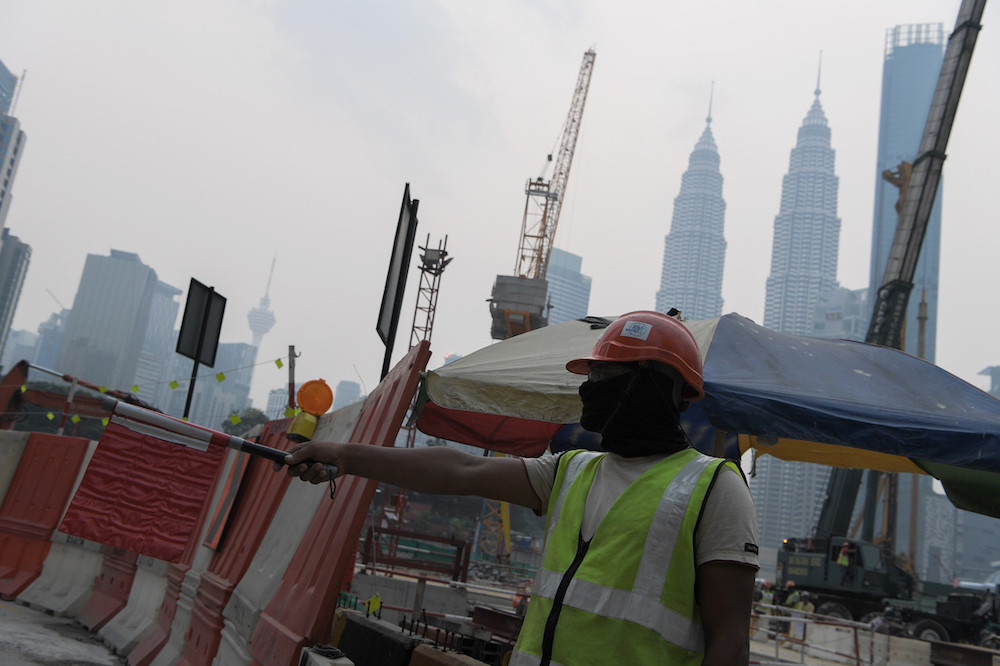KUALA LUMPUR, May 2 ― As Muslims in Malaysia welcome the month of Ramadan this year in a sombre mood amid the Covid-19 pandemic, vulnerable communities such as migrant workers are also pondering their fate as they quietly celebrate the holy fasting month.
Many members of these communities largely work as day labourers in the so-called 3D (dangerous, dirty, and difficult) sectors or physical retail.
Following the enforcement of the movement control order (MCO) on March 18, many migrant workers found themselves out of jobs and quickly running out of funds.
Then came Ramadan, a month that is usually celebrated with families and friends, a much-needed morale boost among any community ― but that too became a dangerous luxury as mass gatherings prohibited under the MCO.
“It is something I have never experienced before. Ramadan is a month usually filled with activities even late into the night. Now there are no more tarawih prayers or moreh at our local mosque.
“It shows how serious the disease is and how the authorities are reacting to it,” said a construction worker who only wished to be known as Fitri, from Indonesia.
Muslims usually perform the tarawih prayers in mosques every night during Ramadan, followed by “moreh”, a communal supper there after the religious rituals are completed.
“I think most of us can bear to celebrate Ramadan in a modest manner. We can miss going to the bazaars or looking for new clothes or accessories for this year as it is inevitable with the Covid-19 issue.
“But many of us are deeply worried about our livelihood in the days to come. Not many of us can last through the month ahead without paying jobs,” Fitri added.
These views are also expressed by Fitri's housemates, all of whom do not wish to be identified, yet they all voiced their concerns on getting through the month on limited funds with most of their earnings sent back home to their families in Indonesia.
“Thankfully we here get by for now ... RM10 from one friend, RM 15 from another, everyone chips in to buy groceries for the week and we ration carefully on what we should eat. But there are some who are not as lucky,” he said.
However, Fitri stated that he was thankful to be here compared to his home country where Covid-19 cases are rising.
At the time of writing, Indonesia is tackling 10,551 cases with 800 deaths from Covid-19.
Another construction worker who only wished to be known as Selamat said during this trying period, it was their respective local migrant community who would come to their aid.
“The community is helping one the best way they can as we rarely received any sort of aid from anyone. So those among us who can spare a few extra ringgit would do so.
“Those who are able to provide food will also do so. So we are counting on each other to help one another,” Selamat said when Malay Mail met him at his home in Kampung Baru in the capital.
Selamat came into the country from Indonesia in 1986, and said he was awarded a permanent residence a year later.
However, he still maintains a good relationship among the local community of his former countrymen who came here seeking better employment.

''No one is really to blame in this situation but I can only point out that right now, that myself and the rest of the migrant community here are struggling. What is worse is that we are merely waiting for any word or chance that we might be employed again,'' he said.
Earlier this month, the Malaysian Trades Union Congress (MTUC) urged the government to take action against unscrupulous employers who leave their migrant workers unpaid and stranded during the ongoing MCO against the Covid-19 pandemic.
Its secretary-general J. Solomon said the Labour Ministry’s enforcement team must act to nip this problem in the bud, since such treatment of migrant workers has placed Malaysia in breach of all international labour standards and invites condemnation from the global community.
In his statement on April 8 , Soloman stated that the MTUC has already received more than 300 complaints from workers throughout the country claiming that they have been retrenched, asked to take a pay cut or forced to go on unpaid leave
Solomon said this is only the beginning of a serious problem arising from employers who are using the MCO as an excuse to sack workers, thereby abandoning them after huge profits have been made while giving them a minimum wage.



















